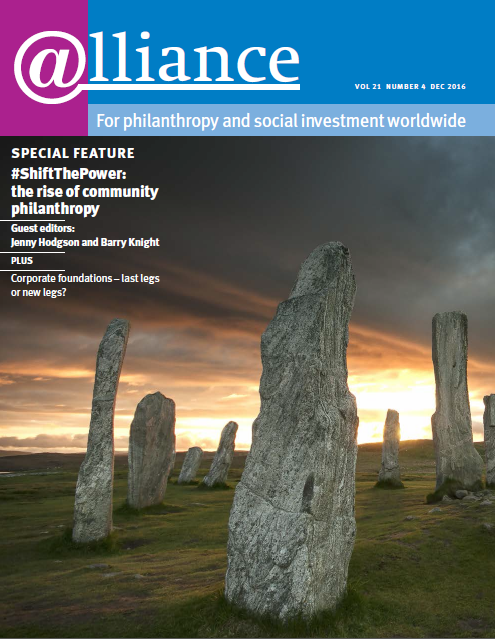Alliance magazine is to be commended for its September issue special feature contributing to the ongoing discussion of philanthropy’s increasing influence.
Often philanthropy has too much influence depending on the cause and the donor. There is frequently a clear imbalance of power in the relationship between donors and recipients. Yet most philanthropic individuals are small donors, who give to causes they believe in with no expectation of personal influence, only a desire to contribute to a greater good.
Donors also receive substantial tax relief for their giving. When that tax benefit is realized, the donor has a responsibility to the public good, not just to a specific agenda that they hope to influence.
A donor providing unrestricted funds for scholarships, for example, differs substantially from an individual donor who uses their wealth to fund work that furthers their political and policy objectives. These individuals often donate outside the foundation sector in order to maintain maximum control with minimum transparency. Donors also receive substantial tax relief for their giving. When that tax benefit is realized, the donor has a responsibility to the public good, not just to a specific agenda that they hope to influence.
In institutional terms, there is an argument for having more influence rather than less, as noted in the last issue of Alliance by Gerry Salole, CEO of the European Foundation Centre. This is an acknowledgement that foundations are generally an accountable force for good. However, even foundations, particularly those with living settlors, can be too focused on their own agenda, closing themselves off from potential grantees, and making misplaced demands for the measurement of results.
Philanthropic giving, wherever it comes from, should concentrate more on allowing grantees greater freedom to drive the agendas they serve and that they best understand.
Angela Seay
Chair of trustees, Polden Puckham Charitable Foundation
On the same topic: ‘Funders need to use knowledge and exert influence‘ by Lena Baumgartner, ‘Choose carefully: thoughts on philanthropy’s bankers‘ by Karin Jestin, and ‘Democratize philanthropy‘ by Eugenie Harvey.





Comments (0)